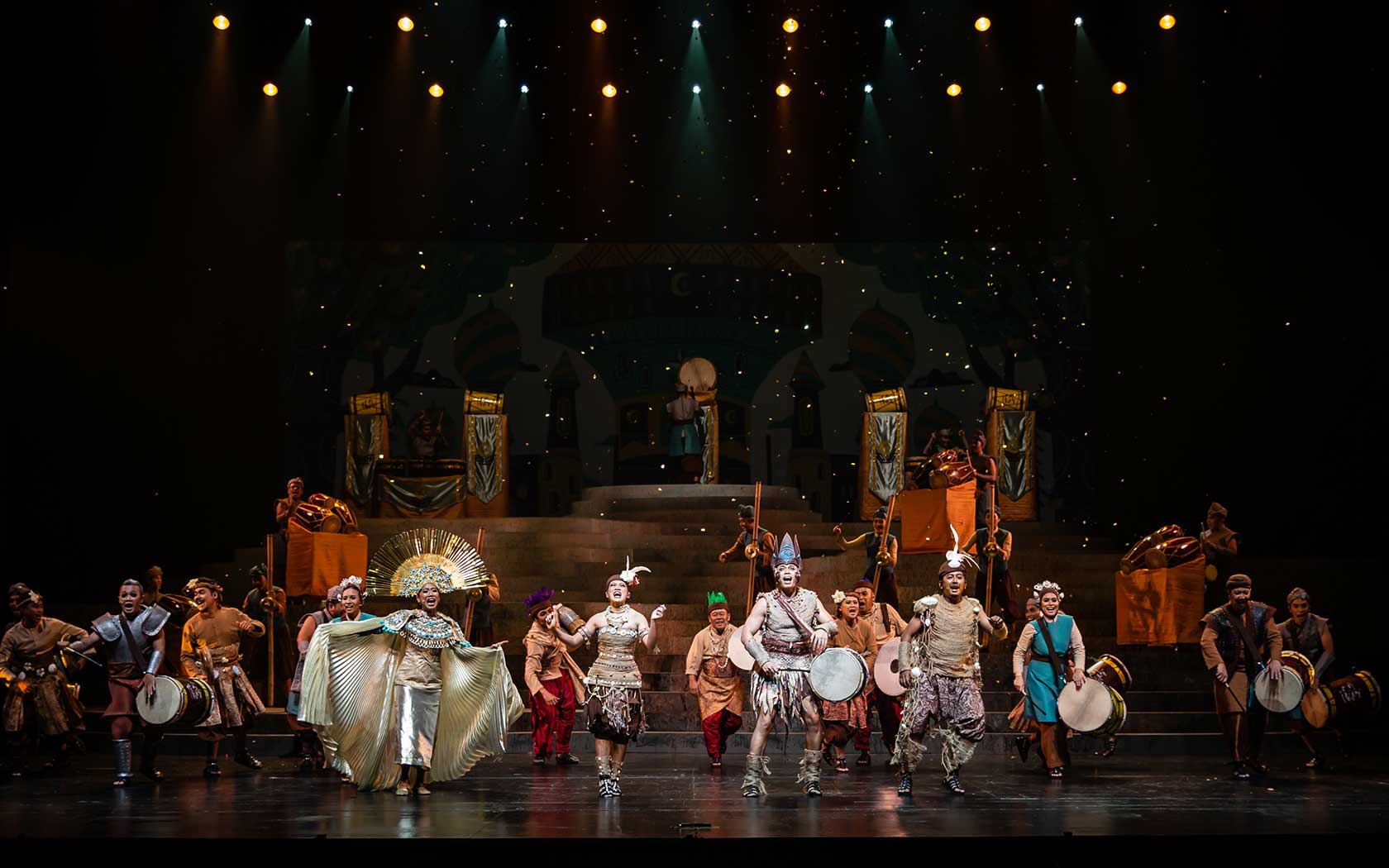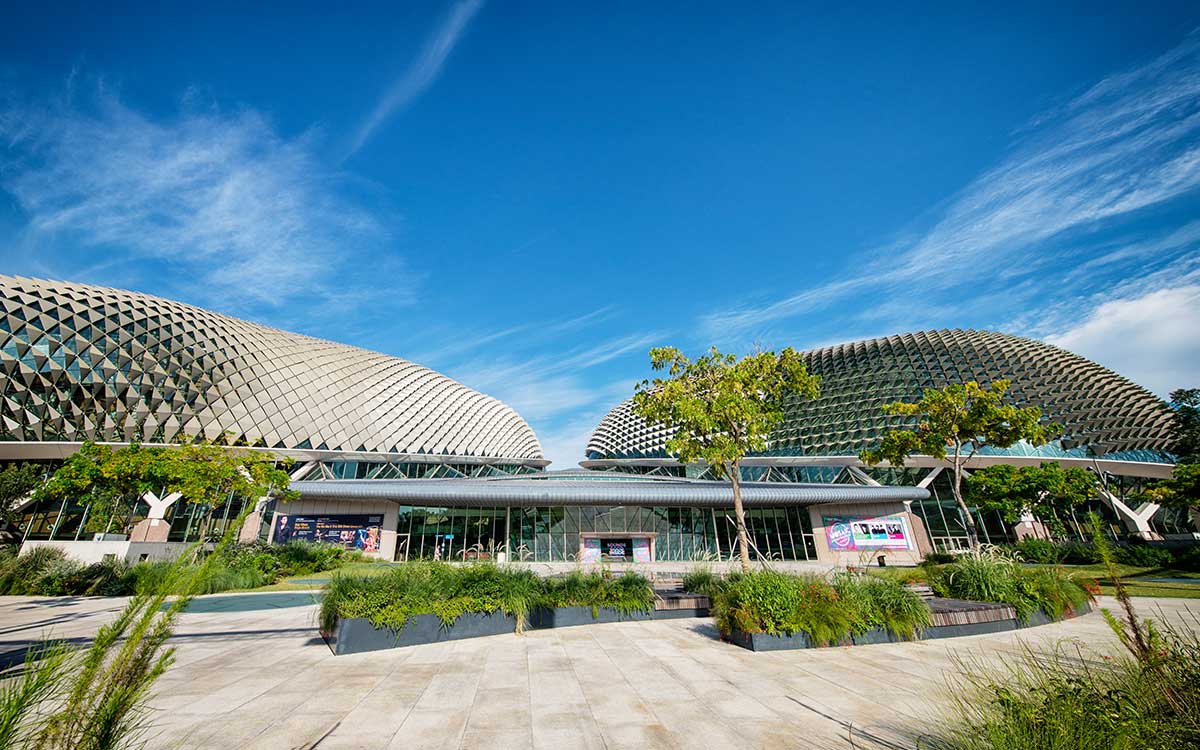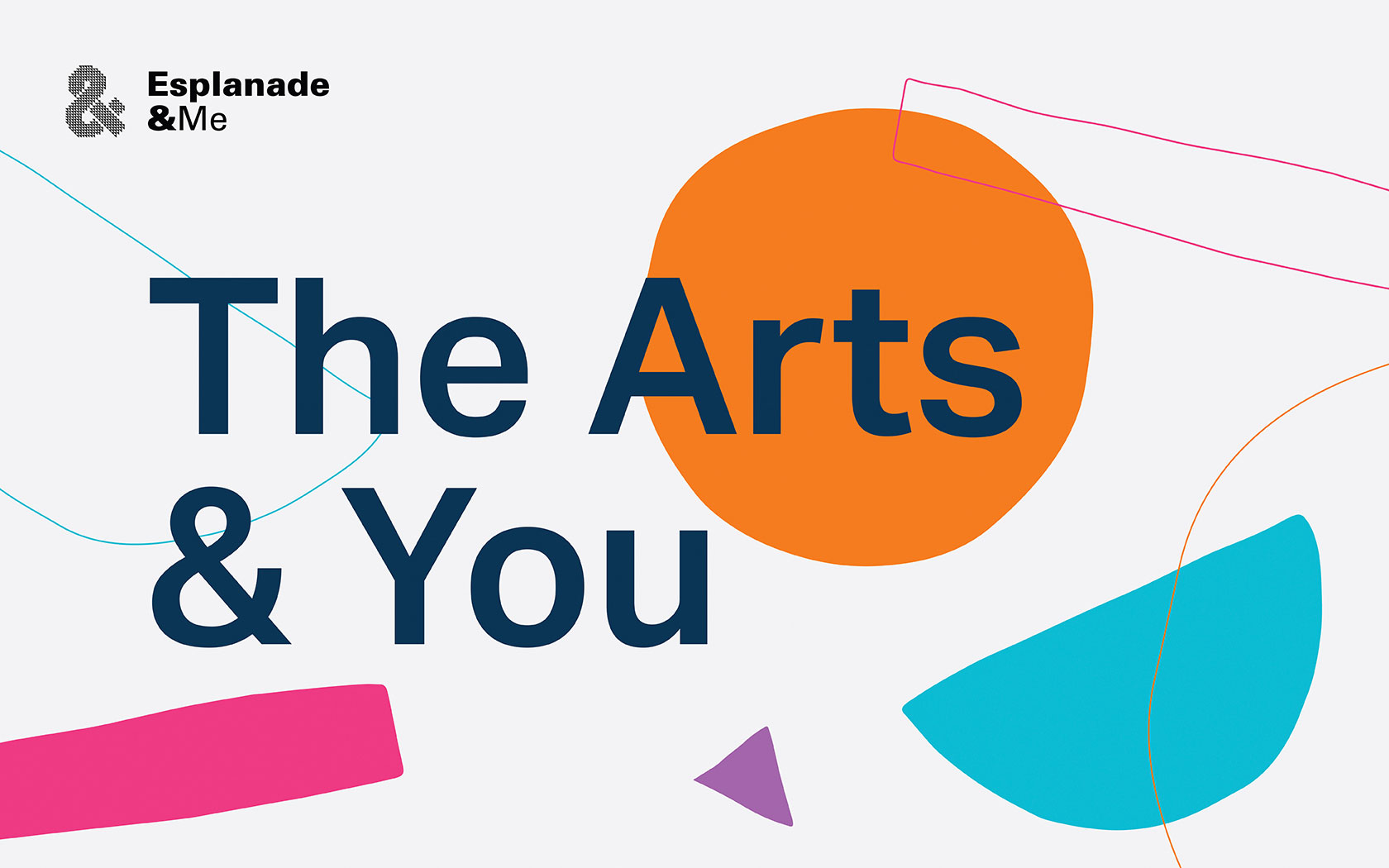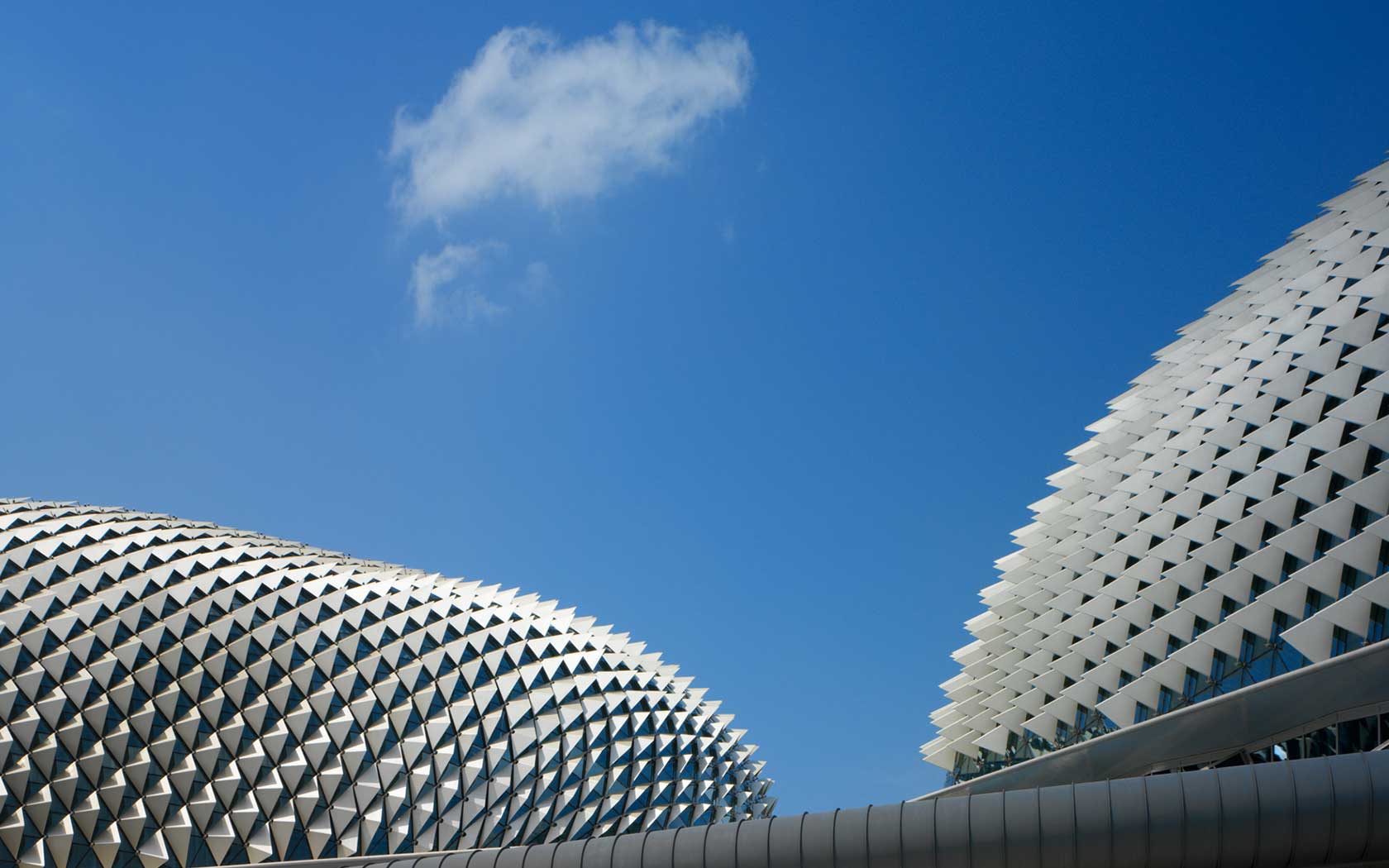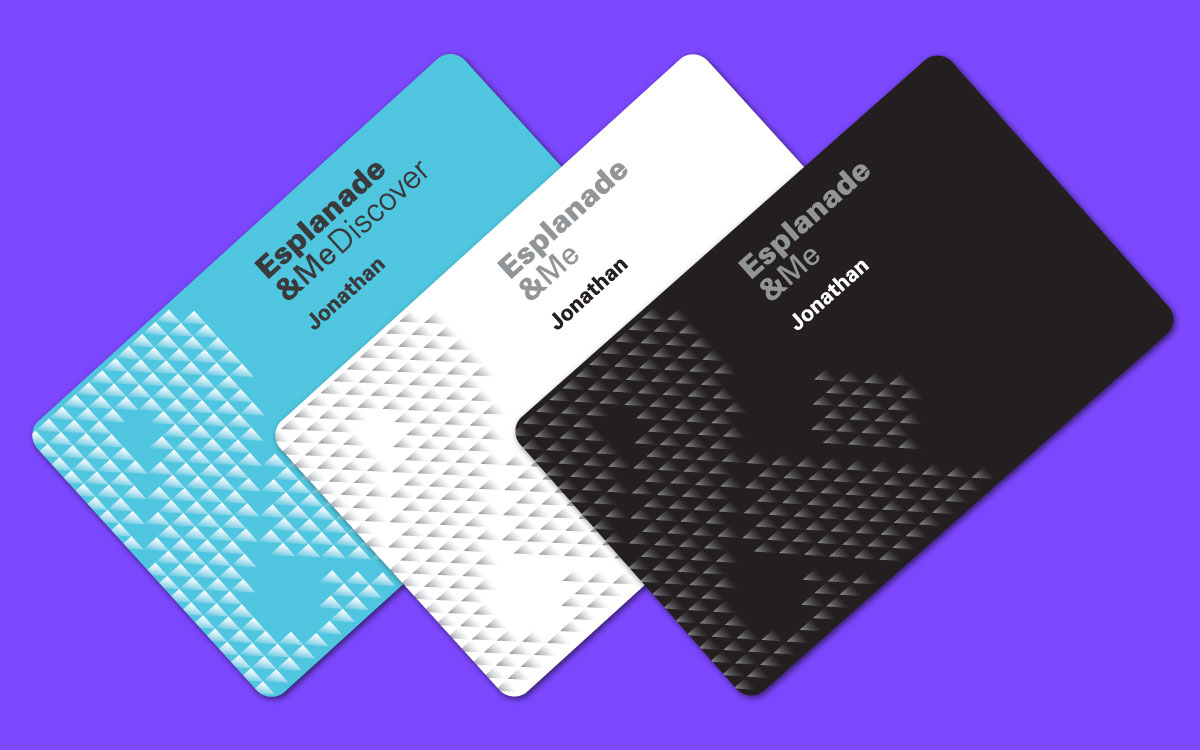Esplanade – Theatres on the Bay invites local and international artists, curators, programmers, writers, researchers and practitioners across all disciplines in the performing arts to apply for the Contemporary Performing Arts Research Residency, taking place in Singapore between April and June 2026. In its third edition, the Contemporary Performing Arts Research Residency is an artist capability development programme by Esplanade – Theatres on the Bay, supported by the National Arts Council, Singapore.
This fully-funded residency aims to support creative research in contemporary performing arts by providing its residents the time and space for artistic inquiry, experimentation, development, research activities and opportunities for interdisciplinary and transcultural dialogues. The residency welcomes various manners and methodologies of enquiry, embracing a pluralistic approach towards research that unfolds not only through the written word, but also includes forms of experimentation with the body, performed moments, and other non-traditional systems of knowledge.
There is no commitment for residents to create a production during or after the residency. Instead, residents will be asked to present at least one public programme of their choosing, developed in conversation with the Esplanade residency team.
The residency is a duration of between one month to three months long and residents will receive a stipend, access to a shared-working space, studios when required, as well as accommodation and international travel to or from Singapore, if from abroad.
There will be biennial open calls held for applications to the residency and each edition will revolve around a thematic focus conceived to respond to current critical issues in our society. In 2026, the residency presents the thematic focus This Time.
This Time
This Time talks about the concept of living in the present moment through a broad and critical scope, whether conceptually addressing this day and age or on a methodological level. It delves into the idea of “the doing” while acknowledging the fleeting nature of time. The theme suggests a sense of urgency and repetition, as if attempting to rectify or make something better with trying again. It alludes to confronting the impermanent and the weight of the past.
The residency seeks to support research projects that employ performativity as a lens to examine pertinent issues on a personal or macro level. The dwell time in the residency encourages self-reflexivity and hopes to foster deeper insights and more nuanced understandings of the world, or inform personal or artistic practices.
The residency invites individuals working and researching within any discipline(s) in the performing arts in Singapore and across the world to submit proposals that complement the conceptual lines set by the thematic focus alongside their artistic practice.
Open Call for 2026 Residency
The Open Call for this edition of the Contemporary Performing Arts Research Residency at Esplanade – Theatres on the Bay starts on 28 April 2025 and closes on 22 June 2025.
|
28 Apr 2025 |
Start of Open Call |
|
22 Jun 2025 |
Deadline to submit application (11:59pm, GMT+8) |
|
Jun – Aug 2025 |
Review of the applications by the Selection Panel |
|
Sep 2025 |
Announcement of the outcome |
|
Apr – Jun 2026 |
Residency period in Singapore |
Before applying for the residency, applicants are asked to keep the following in mind:
-
Only research proposals will be considered—production and rehearsal proposals will not be accepted.
-
As a physical space will be granted to conduct research, it is expected that residents will commit to using the space within the residency programme dates.
-
The residency is self-directed. Residents should be open to dialogues on their research and practice with the residency panel, fellow residents and, where appropriate, the public as well as the artistic community in Singapore.
-
Residents are expected to conduct a public programme related to their research (such as talks, workshops, etc)
-
Research content or artistic form has to be contemporary and related to the performing arts.
Eligibility: The residency is open to local and international artists, curators, programmers, writers, researchers and practitioners who practice in contemporary performing arts, at any stage of their career. The residency can accept applications from companies, ensembles, collectives, work groups or duos but can only provide funding, work space, airfare and accommodation (if from overseas) for one (1) person.
-
A stipend of S$2,000 per month (minimum one month, maximum three months)
-
An allowance of up to S$1,000 for research materials or support (subject to approval)
-
Shared-working space for all residents
-
Studio spaces when required
-
Accommodation and international airfare to and from Singapore, if from abroad
-
Resources for organising a public programme (to be further discussed with the residency team)
-
Consultation with the Selection Panel to support and strengthen the research
-
Opportunity to engage with fellow residents for peer feedback and support
-
Programming support in the form of research connections, networking, etc.
1. Completed Application Form
All applicants will have to submit their application via the online application form, found here. A completed application includes fully filling in mandatory fields in the form, including an online file sharing platform link for items 2 – 6.
2. Research Proposal
In the research proposal, the applicant should articulate the following:
-
Describe the content and aims of the research, and how it relates to your artistic practice.
-
The purpose and meaning of being able to develop the research in the context of a residency in Singapore and/or Southeast Asia.
-
How the research relates to the thematic focus of the residency.
-
Any preliminary ideas* and thoughts towards what kind of public programme you may wish to have. This can take the form of talks, workshops or presentations which will be open to the public.
*Please note that these preliminary ideas are not central in the evaluation of the proposal. Residents will be accepted based on the strength of their proposed research subject.
In addition to text, you may use any medium you find useful to best describe your research proposal, be it various forms of text such as essays, scripts or narratives, audio such as recordings, sound art or music, and videos such as recordings, performance documentation, etc. We would prefer for these supporting materials to not go beyond 1,500 words for texts and 12 minutes for audio and video.
The research proposal must be saved in PDF with first and last name of the applicant as follows: Proposal_FirstNameLastName.pdf
3. A short video presentation
Applicants are required to submit a short video presentation (maximum 5 minutes) introducing their practice and providing a summary of their research proposal for the residency. This can be a simple recording made on a smartphone. The video must be saved in MP4 format with first and last name of the applicant as follows: Video_FirstNameLastName.mp4
4. Curriculum Vitae and Biography
The Curriculum Vitae must be saved in PDF format with first and last name of the applicant as follows: CV_FirstNameLastName.pdf
5. Portfolio of selected works (web/video links, images etc. must not exceed 12 pages or 5MB if sent as attachment)
The Portfolio must be saved in PDF format with first and last name of the applicant as follows: Portfolio_FirstNameLastName.pdf
6. Optional: Any other supporting documents which give us a better understanding of your work or research such as reviews, interviews, or references etc., if any or relevant.
Supporting documents must not exceed 6 pages and must be saved in PDF format with first and last name of the applicant as follows: Supportingdocs_FirstNameLastName.pdf
The working language of the residency is English, therefore all information in the application form, research proposal, video presentation, curriculum vitae and biography, portfolio and supporting documents must be in English, and translations are required for non-English text. If there are any issues, please contact us prior to the submission at residencies@esplanade.com.
Submission Procedure: All required documents must be submitted through the online application form by 22 June 2025, Sun (11.59pm, GMT +8). Please upload all documents and files to Google Drive and share the link via the field indicated in the online form. Please include information of your access needs, if any.
Do note that incomplete applications will not be considered.
Your details will be stored securely for the purposes of this application and will be used only for the purpose of evaluation for the residency. We will delete the files to your application and any associated documents after six (6) months from the completion of the selection process.
For any questions or feedback, please email: residencies@esplanade.com.
Residents are chosen through a Selection Panel comprising leading international curators, programmers, academics, artists and managers. They have been appointed based on their thought-provoking practices, dynamic networks with practitioners from a wide variety of disciplines and their invaluable knowledge of the performing arts across Singapore, Asia and beyond. The Selection Panel will also serve as interlocutors in the programme’s development and be available as consultants for all residents.
The Selection Panel of the 2026 Contemporary Performing Arts Research Residency are:

Nanako Nakajima is a dance scholar and dramaturg. She received the Special Commendation of the Elliott Hayes Award in 2017 for Outstanding Achievement in Dramaturgy from the Literary Manager and Dramaturgs of the Americas. She has worked with international festivals, theatres, and universities, where she integrates her research on ageing into dance.
Since 2022, she has been a mentor of the CP [3] programme at DANCE NUCLEUS, Singapore, a Valeska-Gert Visiting Professor 2019/20 at Freie Universität Berlin, and Faculty Dramaturg in Dance since 2022 at the Banff Centre for Arts and Creativity, Canada. She is an Associate Professor of Dance Studies at Waseda University, Japan.
Her publications include The Aging Body in Dance (Routledge, 2017) and Oi to Odori (Keiso Shobo Publisher, 2019). She is currently preparing for her monograph, Dance Dramaturgies of Aging: A Journey of Negotiating Identity Across Generations, Dance Cultures, and Embodied Histories in between Continents (Routledge, 2025).

Photo credit: Singapore Art Museum
Singapore-born, Berlin-based Ming Wong is an artist whose video installations and performances contend with cinema and popular culture to consider how identity is constructed, reproduced and circulated.
Recent exhibitions include AUUUUDITORIUM, Rockbund Art Museum, Shanghai (2024); Signals: How Video Transformed The World, Museum of Modern Art, New York (2023); Wayang Spaceship, Singapore Art Museum (2022).
His recent performance Rhapsody in Yellow was shown at steirischer herbst, Graz (2022); Berliner Festspiele (2023), SpielArt Festival, Munich (2023), Kunstfestspiele Herrenhausen, Hannover (2024) and Esplanade – Theatres on the Bay in Singapore (2024).
His solo presentation Life of Imitation at the 53rd Venice Biennale in 2009 was awarded a Special Mention.
He is the artist in residence at the National Gallery London for 2025.

Wu Mali is an artist, art educator and Emeritus Professor at National Kaohsiung Normal University, Taiwan. She received the National Award for the Arts in 2016 and co-curated the 2018 Taipei Biennial. Since 2020, she oversees the Art for Social Change project at National Tainan Living Arts Center.
Her art works has been presented at Venice Biennial (1995), Fukuoka Asian Art Triennale (2005), Asia Pacific Triennial of Contemporary Art (1999), and Singapore Biennale (2022), and more. In 2022, she was awarded Bellagio Center fellowship from the Rockefeller Foundation.

Faith Tan has over 20 years of programming, producing, management and international networking experience in the performing arts. She was Head of Programme Development at Dance House Helsinki, Finland in 2020, where she co-initiated a commission programme for new dance productions by Finnish dancemakers. She is currently Co-Programming Director in Singapore’s national arts centre, Esplanade – Theatres on the Bay, overseeing Dance, Theatre, Visual Arts and International Development. Under her direction, Esplanade’s da:ns festival and series in Singapore co-produced productions by world renowned artists, commissioned and championed new work from significant Asian dancemakers, supported the practice of dramaturgs for dance, presented a large public participatory programme, as well as an artist lab and seminar workshops. Tan’s work at Esplanade included overseeing the Theatre department between 2017 – 2019, and programming music for the Mosaic Music Festival from 2005 – 2012. She is a founding member of the Asian Network for Dance (AND+) and serves on panels for grants from the National Arts Council in Singapore. Tan holds a Masters degree in Arts and Cultural Management.

Jia Jia Hoon joined the National Arts Council in 2005. Over the years, her portfolio included policymaking and implementing programmes for the music and traditional arts sectors. She had also worked on various initiatives to strengthen the capabilities of the arts sector, including a fundraising training programme (in partnership with LASALLE College of the Arts), the Singapore Regional Fellowship (in partnership with ISPA) and the Arts Resource Hub. In 2014, she obtained a MA in Culture, Policy and Management from City, University of London, graduating with the Head of Department Prize for the highest overall mark.
Eligibility and Application
The Contemporary Performing Arts Research Residency is open to local and international artists, curators, programmers, writers, researchers and practitioners at any stage of their career who practice in contemporary performing arts. This includes but is not limited to theatre, dance, music and multidisciplinary works.
The residency can accept applications from such groups or organisations but can only provide funding, work space, airfare and accommodation (if from overseas) for one (1) person.
All applicants will be notified of their selection results by 30 Sep 2025.
Living in Singapore
The Residency is unable to accommodate and support the stay of family members, relatives, partners, and other guests.
Health insurance will not be provided by Esplanade. Residents are highly encouraged to purchase their own travel insurance, preferably one with medical coverage. All residents are expected to be responsible for their own health and well-being.
Other Questions
Yes, residents require a permit to stay in Singapore. The application for such permits will be done through Esplanade – Theatres on the Bay.
Yes, as long as the resident spends least 80% of the residency term in Singapore making active use of the studio space.
We will not provide any additional funding for accommodation and travel expenses beyond residents’ stay in Singapore.
Accessibility
We seek to support access and establish a safe and welcoming space to facilitate the participation of the widest range of people possible.
We acknowledge our potential blind spots and assumptions, and seek to learn and address the perspectives of others with diverse subjectivities and lived experiences whenever possible.
For any questions or feedback, please email: residencies@esplanade.com

